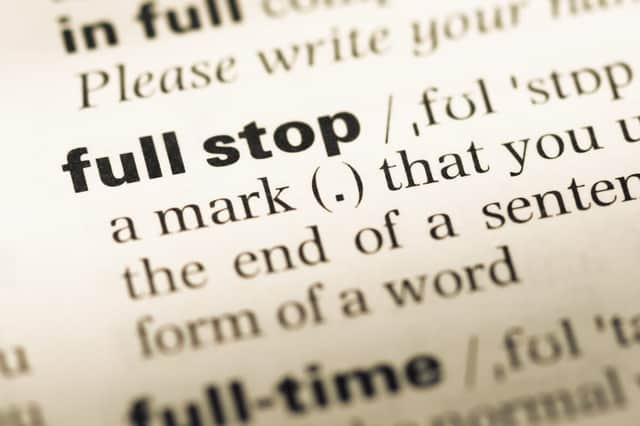Young people are 'intimidated' by full stops in text messages - here’s the psychology explained


As social media and instant messaging become ever more ubiquitous, the way we're communicating is changing.
New words regularly crop up to define new online phenomena, and even the way we use punctuation is constantly evolving.
Advertisement
Hide AdAdvertisement
Hide AdTake, for instance, the humble full stop. Years ago it was simply the signifier of the end of a sentence - an instruction to take a breath and pause before ingesting the next line of information.
But, in the internet age, the punctuation mark could actually be having an adverse effect on youngsters.
Are full stops a bad thing?
That's according to linguistics experts studying the effect of technology on the way we use language.
"If you send a text message without a full stop, it's already obvious that you've concluded the message," said Dr Lauren Fonteyn, an assistant professor at the Netherlands' Leiden University studying language change.
Advertisement
Hide AdAdvertisement
Hide AdIn fact, because we’ve grown so used to communicating without full stops, choosing to use one could actually be causing younger people (who have grown up with a less universal use of the punctuation mark) distress.
"If you add that additional marker for completion, they will read something into it and it tends to be a falling intonation or negative tone," said Dr Fonteyn.
This thinking might not even be that new.
In 2015, leading language expert Professor David Crystal published the book Making a Point, in which he explained that the full stop has become an “emotion marker” used to signify anger or annoyance.